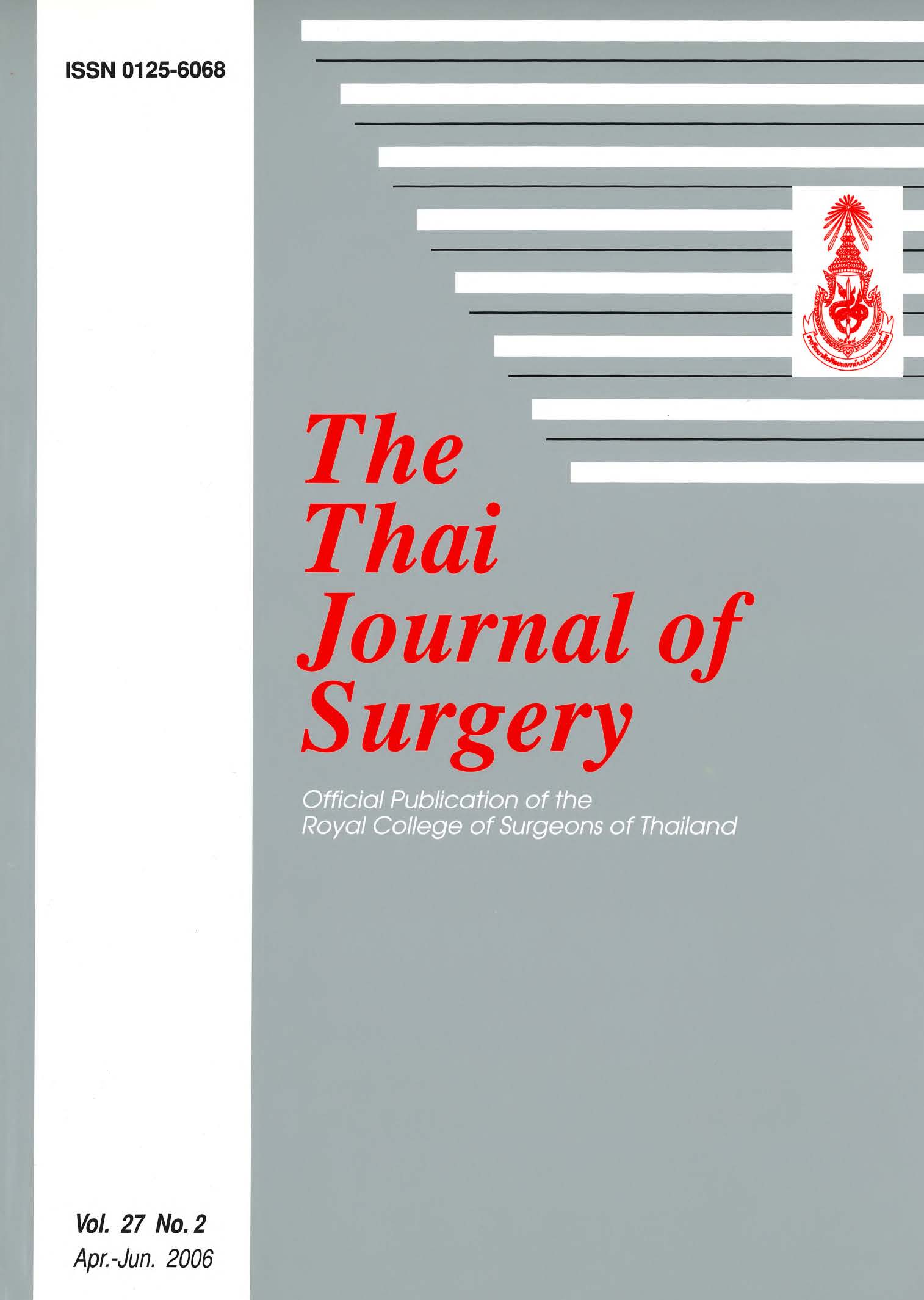Comparison in Diagnostic Methods of Acute Appendicitis by Modified Alvarado Score and Clinical Diagnosis
Abstract
Objectives: Decision making in the diagnosis of acute appendicitis may be difficult especially for young surgeons. Many scoring systems have been proposed as an adjunct in the diagnosis and management. Among them, the modified Alvarado score is simple and has been helpful in minimizing unnecessary appendectomies in previous studies. This study was conducted to compare the accuracy in the diagnosis of acute appendicitis between clinical diagnosis and modified Alvarado score.
Methods: Prospective data collection was performed on adult patients aged 16 years and older who were admitted with the diagnosis of suspected acute appendicitis. The modified Alvarado score was recorded in each patient. Patients with score at least 8 were considered to have acute appendicitis. Patients with the surgeon's clinical diagnosis of acute appendicitis were offered appendectomy regardless of the score. For the diagnosis of non-acute appendicitis, we used 2 criteria; negative by the pathological examination in patients who underwent appendectomy, and no further abdominal pain within 30 days in patients without surgery. The positive predictive value, negative predictive value, and accuracy of surgeon's clinical diagnosis and modified Alvarado score were compared.
Results: Fifty patients were recruited in this study with the mean age of 39 years (ranged 16-85 years). Based on surgeons' clinical diagnosis, 45 patients underwent appendectomy. Five patients were discharged from the hospital without surgery and with no further abdominal pain in 30 days afterwards, Of the 45 patients who underwent appendectomy, pathological reports confirmed the diagnosis of acute appendicitis in 41. The positive and negative predictive value for clinical diagnosis was 91.11% and 100% respectively (accuracy 92%). The figures in modified Alvarado score were 92.00% and 28.00% respectively (accuracy 60%).
Conclusions: From this study, the modified Alvarado score does not seem to be a better diagnostic method than clinical diagnosis alone.
References
2. Gronroos JM, Gronroos P. Leucocyte count and C-reactive protein in the diagnosis of acute appendicitis. Br J Surg 1999;86:501-4.
3. Chan MY, Teo BS, Ng BL. The Alvarado score and acute appendicitis. Ann Acad Med Singapore 2001; 30: 510-2.
4. Pruekprasert P, Maipang T, Geater A, Apakupakul N, Ksuntigij P. Accuracy in diagnosis of acute appendicitis by comparing serum C-reactive protein measurements, Alvarado score and clinical impression of surgeons. J Med Assoc Thai 2004;87:296-303.
5. Al-Hashemy AM, Seleem Ml. Appraisal of the modified AIvarado score for acute appendicitis in adults. Saudi Med J 2004;25:1229-31.
Downloads
Published
How to Cite
Issue
Section
License
Articles must be contributed solely to The Thai Journal of Surgery and when published become the property of the Royal College of Surgeons of Thailand. The Royal College of Surgeons of Thailand reserves copyright on all published materials and such materials may not be reproduced in any form without the written permission.



